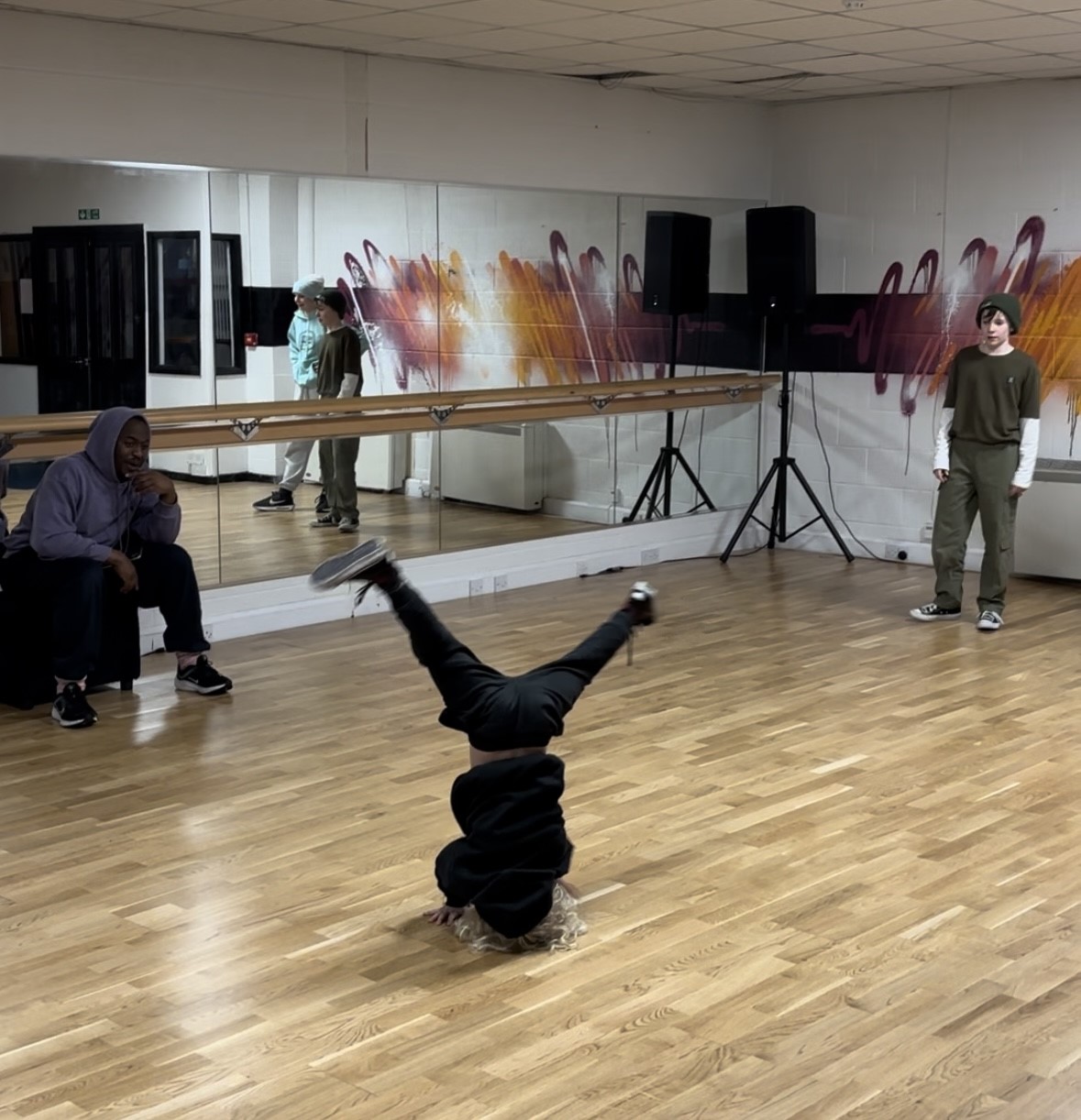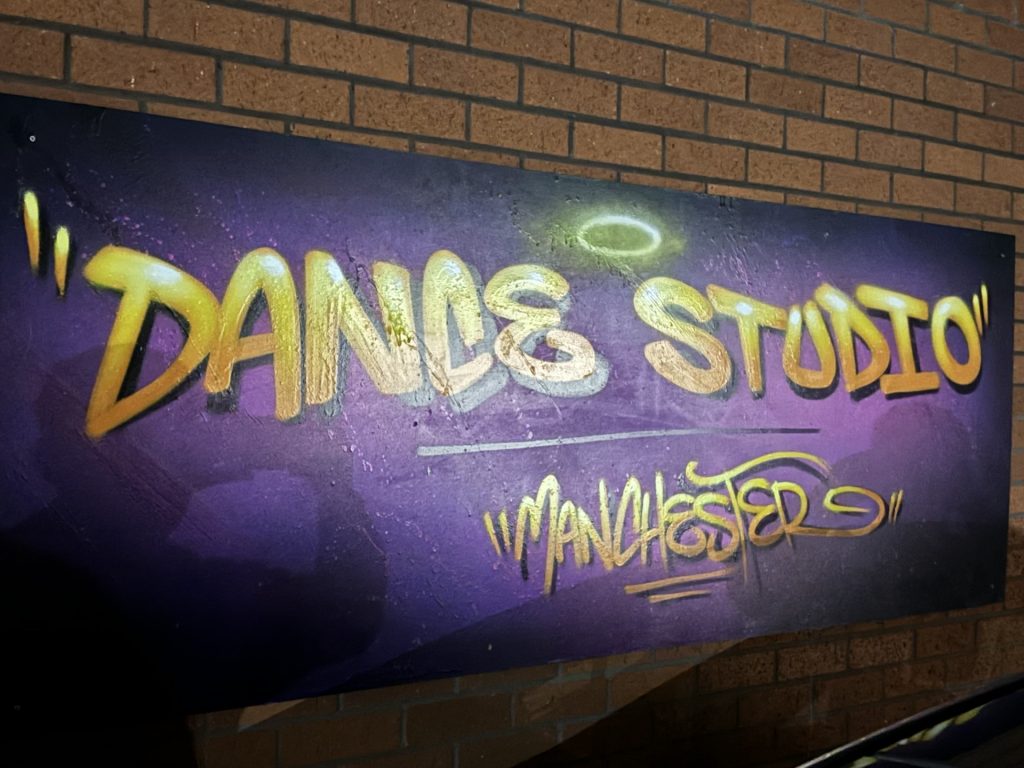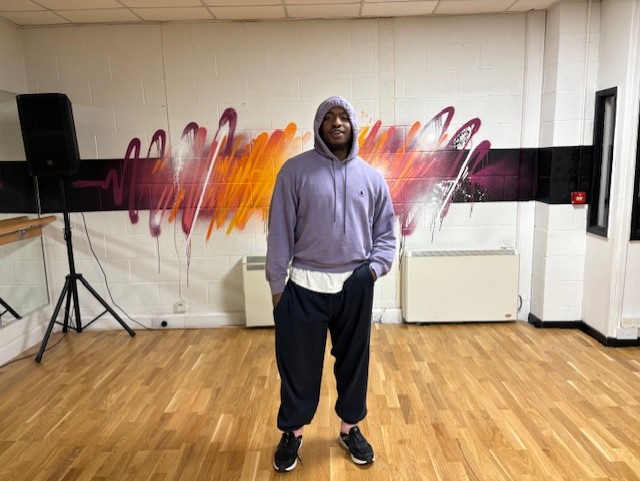
With just under six months until breaking makes it Olympic debut at La Concorde Urban Park in the heart of Paris, the Olympic spirit is having a tangible impact on Manchester’s breaking community.
However, within breaking circles there is still no universal agreement on its status as a sport.
Edenamiuki Aiguobasinmwin, 28, a coach at Break Dance Manchester, and breaker of 15 years, said: “We don’t care to be a sport. It’s always a culture. The sport bit is just the economic potential.”
Breaking is now a global sport but it developed as a form of street dance by African-Americans and Puerto-Ricans in the Bronx, New York, in the early 1970s. It is inherently linked to Hip-Hop music, with DJ’s blasting music for breakers to dance to.
Breakdancers refer to themselves as ‘B-Boys’ or ‘B-Girls’. This is someone who practises the dance of breaking, and also follows the hip-hop culture and lifestyle.
At the Olympics, athletes will face each other in a one-on-one ‘battle’, taking turns to perform their routine to music. Judges score the battles based on creativity, personality, technique, variety, performativity and musicality.
There will be separate competitions for men and women, with 16 B-Boys and B-Girls battling for medals.
Qualification for Paris will be confirmed by June. Derby-based B-Boy Kid Karam, 25, a silver medallist at the 2022 European Championships, is Team GB’s greatest medal hope.
An Olympic berth has created a unique opportunity to grow breaking’s infrastructure and increase participation nationwide.

Break Dance Manchester’s studio, nestled in Unit 25 of an industrial estate in Monsall, was financed by an innovation fund from the Department for Digital, Culture, Media and Sport. It opened last year to exploit the increased attention the sport will receive this summer.
Aiguobasinmwin, who is also the North Area Board Member for Arts Council England, and the former Head of Research at Manchester Hip Hop Archive, said: “We wanted to be strategically ready to open for the Olympics. There will be a lot of inspired young people.”

“We went for a strategy of being visible – the name Break Dance Manchester. There will be an uptake post-July. Schools will be more interested. There has already been an uptake with schools engaging with us now it has been [deemed] an official sport.”
The Monsall venue now provides a breaking hub that previously never existed.
Aiguobasinmwin added: “When we started, it was really a free for all. We trained at an Arts centre in Hulme. We didn’t have a sprung floor which is really important. We trained at the train station and in university buildings.”
The dedicated space has allowed increasing numbers of children to engage with breaking.
Mary Stark, mother of Ronan, 6, said: My son got into breakdancing at home. Every night just practising on the carpet, and then we realised the bathroom floor was a bit slippier.
He’s been coming since the New Year. He doesn’t do any dance at school, just home or here. He loves the creativity of breakdancing.”
Aiguobasinmwin said: “What we need now is more training for coaches. There’s not really an (official) course for it. Our studio has its own teacher-training programme.”
As well as improved facilities, breaking’s mere presence in Paris has seen increased involvement with the sport.
Deb Singleton, mother of breakers Pippa, 14, and Tom, 11, said: “The hype of the Olympics over the past year or so has helped, as they have seen a lot more of it on TV and at school. Otherwise they probably wouldn’t have heard of it as much.”
A breakdancing ‘craze’, centred on Nottingham, swept Britain in the 1980s, with hundreds of B-Boys descending on Nottingham’s biggest nightclub, Rock City each week.
However, in the decades to follow breaking has attracted limited media attention, even when Manchester hosted the 2022 European Breaking Championship at Belle Vue Sports Village.
“We recently had a random couple come into the studio because they wanted to try all the Olympic sport”, says Aiguobasinmwin. “That was pretty cool.”
But there is more than just a gold medal riding on the Olympics.
“The Olympics provides a platform,” said Aiguobasinmwin. “If we make the most of it, then it can keep the sport for another 100 years.”
